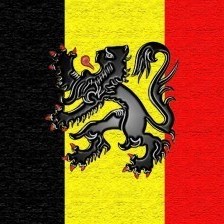Belgium Fines 79 Internet Players For Gambling On Unlicensed Site

In the past, EU countries have shown a willingness to deter iGambling companies from offering their unlicensed products in regulated markets, while leaving the actual players themselves free from prosecution. Alarm bells then started ringing this year with the highly publicized case of a German player who had €63,490 of his online winnings confiscated for “unlawful gaming”. Now, the fight against unauthorized iGaming has gone a step further, after Belgium shocked 79 of its internet gamblers by hitting them with fines for unauthorized wagering.
BGC Confiscates €600k From BetClic Last Year
The latest feud between the Belgian Gaming Commission (BGC) and BetClic Everest dates back to February 2014 when the operator had €600,000 ($668,384) of its player funds confiscated by the regulator for operating illegally in Belgium. BetClic at the time said it would try to rectify the situation, but the site ultimately decided it was more prudent to quit the Belgium market altogether, and subsequently blocked Belgium players from accessing its dot.com site. The news has come too late for those players caught in the crossfire, however, after the BGC has broken tradition by punishing them for their transgressions. While 79 Belgium gamblers have been hit with fines of roughly €200, this is likely to be just the tip of the iceberg as next month high rollers amongst them may be faced with fines ranging from €1,000 ($1,113) up to €16,000 ($17,823).
Belgium Serious About Unlicensed iGaming
The latest development shows how serious Belgium takes unlicensed online gambling within its borders, as in the past it was operators and not the players themselves who faced threats from government bodies. Even after PokerStars and Full Tilt were shut down in the US back in 2011, the US government ensured all American online gamblers received their online funds, although they were subsequently required to fill out IRS forms and provide
records of their gambling winnings and losses.
BGC’s Growing iGaming Website Blacklist
However, Belgium has previously shown itself more willing than other EU jurisdictions to eradicate unlicensed iGaming within the country of 11.2 million people, and soon after regulating its iGaming industry the BGC introduced a blacklist of unlicensed gambling sites. Interestingly, BetClic was one of the first names to appear on the list, but only decided to pull out of the Belgium market in April 2014 after facing a fine of as much as €1.2 million ($1.34 million). Conversely, bwin.party chose another route and decided to enter into a deal with a licensed brick-and-mortar casino company in order to keep taking wagers from Belgian citizens. The decision came after the bwin.party CEO, Norbert Teufelberger, was briefly arrested by Belgium authorities in 2012, and as a subsequent press released stated:
“The group and the commission have also agreed to drop all pending legal disputes and the group has begun to adapt its systems in order to comply fully with the prevailing licensing regime.. Together with our new partner we are now in the process of securing the necessary approvals to meet the requirements set by the BGC and do not expect any interruption to our service for customers in Belgium.”
Players Beware
Each months people from across the whole of Europe spend millions of dollars gambling on unlicensed websites, and while its the operators who usually face the government’s wrath, the latest cases involving both German and Belgium players should be enough to put players on warning as to the risks in betting on unlicensed iGaming sites. While these examples may not set a precedent, they may possibly result in the less players visiting such unregulated sites in the future.
For those players unlucky enough to be targeted by authorities, however, claiming ignorance of the laws is likely to prove ineffectual, as the German player who appeared at the Munich District Court discovered. The unnamed defendant claimed that he believed online gambling as a whole was legal in Germany, and not just sports betting, as he had seen a number of German sports celebrities, such as Boris Becker, promoting iGaming websites such as PokerStars. As he was subsequently told by the court:
“Even a layman knows the difference between sports betting and blackjack. The European Court has ruled that in the specific case of gambling, public authorities have a degree of additional control in determining the requirements arising from the protection of consumers and social order..”










